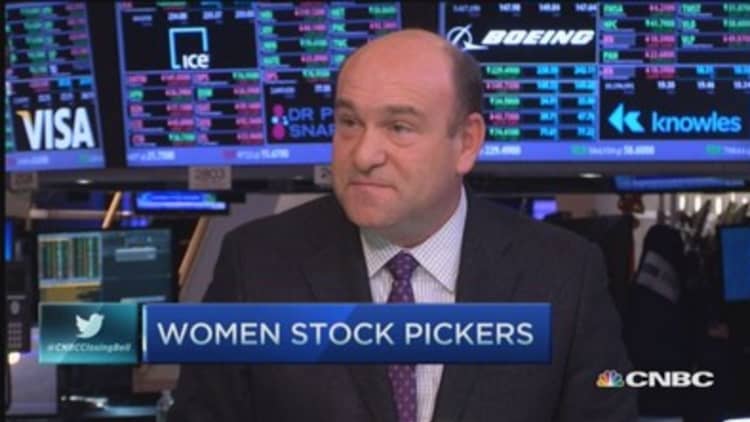Women have much to celebrate in the world of money these days, from increasing rates of business ownership to a shrinking or disappearing wage gap among younger women. They also dominate financial decision-making.
But that's where the good news ends. Studies show women lack confidence when it comes to investing and financial literacy, and at the same time, they also need to pay greater attention to retirement saving and financial planning because they live longer.
Read MoreThe biggest financial threat women face
"Women are aware of the fact that they are going to have more exposure for a greater period of time" to unavoidable costs like health care, said Curtis Arledge, vice chairman of Bank of New York Mellon and chief executive officer of investment management. "They end up investing too conservatively because they are worried about it."
Investing with purpose

Pershing, a unit of BNY Mellon, on Thursday released a new study exploring what drives women to invest and affects their investment behavior, and found that low confidence plays a significant role.
Other studies also have explored women's relatively low investing confidence. For example, Prudential research of women and money found that just 22 percent rated themselves as very well-prepared for financial decision-making, compared to 37 percent of men.
Women's lack of confidence sometimes translates into disinterest. Hearts & Wallets, a retirement market research firm, examined retirement decision-making among couples and found that only 43 percent of them plan for retirement together, and 80 percent of the spouses who were not involved were women approaching retirement age. That's hardly a recipe for a comfortable retirement, given the high likelihood of women outliving their husbands for many years.
Read MoreAn investment challenge more women need to confront
But the Pershing study described a route to a possible solution. Often, it found, women simply approach investing with priorities distinct from men's. While men are more likely to invest with a performance goal, women tend to think in terms of purpose—retirement, health care for them or their loved ones and so on.
Arledge believes women can use that framework to arrive at better investment choices. For example, he said, a couple may have a single target-date fund as part of their retirement assets. But if you frame a secure retirement as a purpose, it becomes clear that "they probably should have some hybrid strategy if the biology plays out the way it typically does." That will help ensure "that the woman has financial security," he said.
Thinking about investing for the purpose of retirement may also encourage women to tolerate more risk in their portfolios, which should enable them to build more sizable nest eggs. (Numerous studies have found that women tend to be more conservative investors than men.)
"Women may be risk averse, but they may need more risk in their portfolio to help them close the gap of those moments in their lives when they were out of the workforce or paying more taxes as single woman," said Kim Dellarocca, managing director at Pershing.
Same return, less risk
Already, there are ways that women's lower confidence works for them. A long-term study by Terrance Odean of Berkeley's Haas School of Business and others found that men's greater confidence caused them to trade more often than women and hurt their performance.
Fidelity also has studied women and investing, and found that over a 10-year period, women and men earned roughly equal returns, at 7.3 percent to 7.4 percent, but women's portfolios had less risk.
Read MoreIs your Valentine a better stock picker than you?
If women can also use their focus on purpose to drive investment choices, that would be money in the bank for them. Literally.


